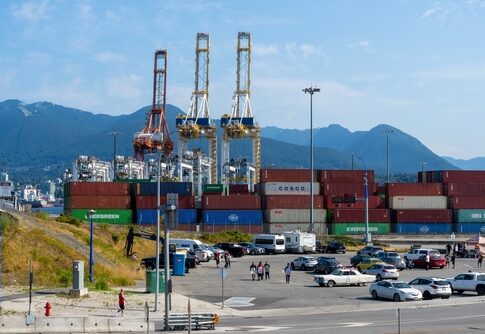As the U.S. faces potential economic turbulence, the Biden administration continues to display a lack of urgency on crucial issues. Recently, Commerce Secretary Gina Raimondo sparked controversy during an interview on CNBC, where she admitted that she hasn’t been “very focused” on the impending dockworkers' strike. This potential strike threatens to bring U.S. and global logistics to a grinding halt, affecting supply chains at a critical moment when inflation and market instability are already at the forefront of economic concerns.
The International Longshoremen’s Association (ILA) represents over 65,000 dockworkers who play a crucial role in maintaining the flow of goods into U.S. ports. Despite being offered a 50% pay raise, workers rejected the deal, escalating fears of an extended labor strike. Raimondo’s admission that she has not prioritized this looming threat comes as a surprise to many, especially considering the potential for severe economic disruptions.
CNBC: What are you hearing will happen if dockworkers strike and it goes longer than a week?
Harris-Biden Commerce Sec. Gina Raimondo: "I have not been very focused on that."
What is she focused on? That is her job.
— Wall Street Silver (@WallStreetSilv) September 30, 2024
A prolonged strike could exacerbate ongoing supply chain issues, leading to delays in essential goods, further price hikes, and potential shortages in critical sectors like food and medicine. Experts have warned that the consequences could mirror or even surpass the disruptions seen during the pandemic, where shipping backlogs created significant economic challenges.
Beyond the immediate logistics crisis, there are broader implications for the economy. If the strike lasts for more than a week, it is expected to significantly hamper trade, increasing the burden on businesses and consumers. With inflationary pressures still present, further disruptions could cripple efforts to stabilize the economy. This could even lead to further interest rate hikes by the Federal Reserve, complicating the already difficult financial landscape for many Americans.
Commerce Secretary Gina Raimondo said last month that she was "not familiar" with the downward revision in the jobs numbers.
Today, she said on TV that she's "not very focused" on a potential port strike that could cripple commerce.
What exactly does this person do all day? pic.twitter.com/9Po6xfkhyM
— Greg Price (@greg_price11) September 30, 2024
Ironically, Raimondo’s comments come at a time when markets have been increasingly optimistic about a soft landing for the U.S. economy. Many investors had hoped that inflation was slowing and that the Federal Reserve’s aggressive rate hikes were nearing an end. However, the potential for a labor strike and its economic fallout are reminders that significant risks remain.
While some in the markets might be downplaying the potential impact of a labor strike, the reality is that it could quickly escalate into a national crisis. A supply chain meltdown would force businesses to seek alternative and often more expensive routes, driving up the cost of goods. This would be felt most acutely by small businesses and consumers, who are already grappling with rising prices on everything from groceries to gasoline.
Secretary Raimondo’s nonchalant response has drawn criticism from both sides of the political aisle. Critics argue that it reflects a broader trend within the Biden administration of downplaying or outright ignoring critical economic issues. With the U.S. heading into a contentious election year, these perceived missteps could have significant political consequences.
Furthermore, the timing of Raimondo’s remarks raises concerns about the administration's priorities. As geopolitical tensions with China continue to rise, and with other major global economic powers facing their own challenges, U.S. leadership is needed more than ever to steer the nation through these turbulent times. Yet, with the Biden administration seemingly distracted or unprepared for looming crises, confidence in their ability to manage economic challenges is waning.



ILA are a group of STONG people and greatly needed people,
we depend on them